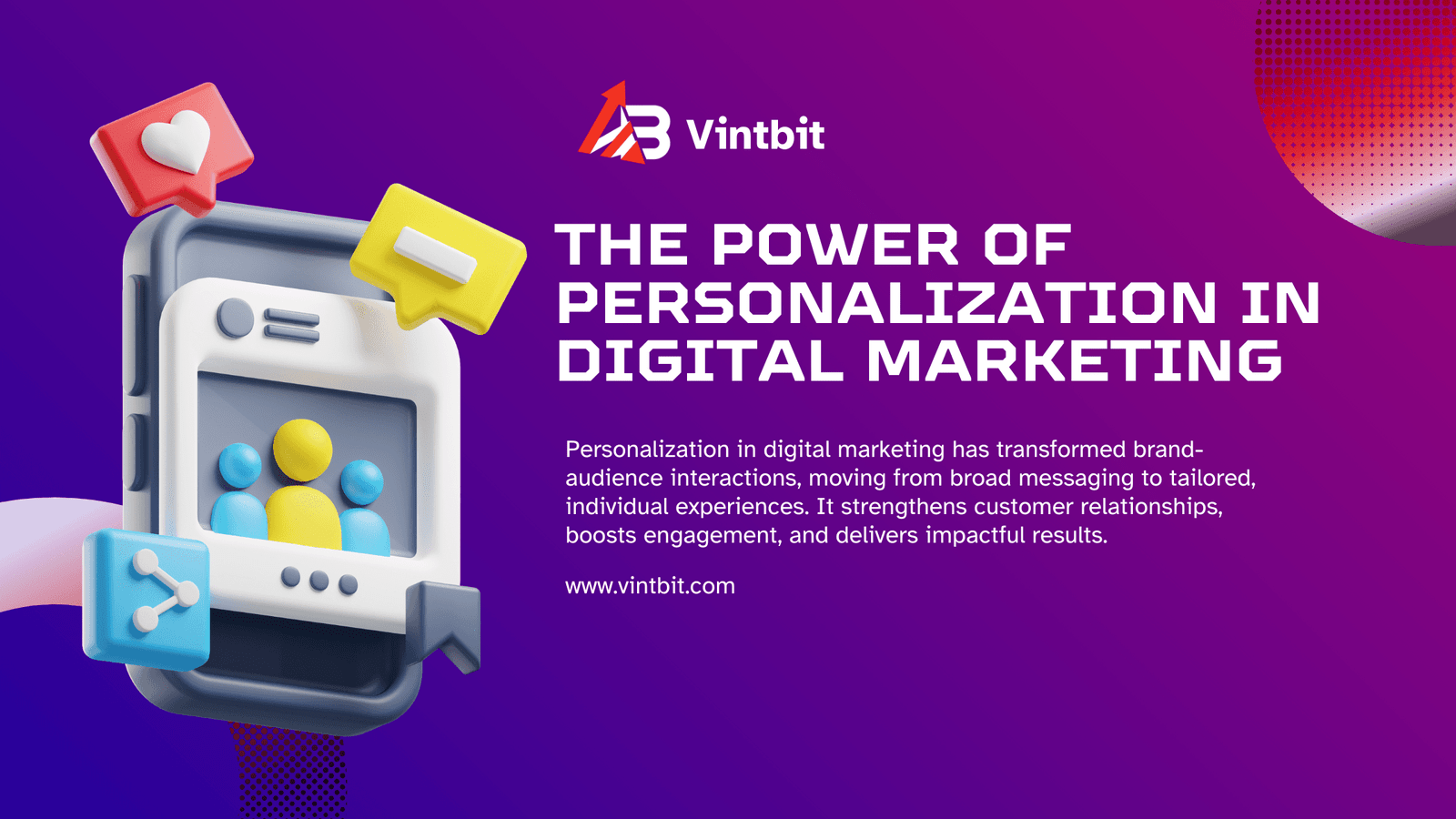Personalization has become an essential aspect of digital marketing, transforming how brands interact with their audiences. It shifts the focus from broad messaging to tailored experiences that resonate with individuals. By using personalization, brands can deepen customer relationships, improve engagement, and drive meaningful results. This blog explores the importance, strategies, and future of personalization in digital marketing, offering insights on how to integrate it effectively into your campaigns.
What Is Personalization in Digital Marketing?
Personalization in digital marketing involves customizing content, offers, and communications based on individual preferences, behaviors, and demographics. Rather than generic messages, personalization uses data-driven insights to create tailored interactions that appeal to each user’s specific needs and interests. From recommended products to targeted emails, personalization can make interactions feel more relevant, improving the user experience. By leveraging various data sources like past purchases, browsing behavior, and demographic information, brands can create campaigns that truly resonate with each customer, fostering brand loyalty and increasing conversions.
Why Personalization Matters for Customer Engagement
Personalization significantly impacts customer engagement by making customers feel valued and understood. When marketing feels personal, customers are more likely to respond positively, interact with the content, and build stronger connections with the brand. Personalization in marketing fosters a sense of relevance, showing customers that brands care about their preferences and needs. Studies have shown that personalized marketing can increase conversion rates, lower bounce rates, and boost customer retention. By incorporating personalization, brands can create a seamless and enjoyable user experience that encourages customers to stay engaged and come back for more.
Key Personalization Strategies in Digital Marketing
Using Customer Data to Drive Personalization
Data is the foundation of effective personalization. By gathering insights into customer behavior, preferences, and purchasing history, brands can create tailored marketing campaigns. From web analytics to customer feedback, using data ethically and responsibly enables marketers to understand their audience and design targeted messaging that resonates with specific interests and needs.
Dynamic Content in Email Marketing
Email marketing is one of the most effective channels for personalization. Dynamic content within emails can change based on the recipient’s preferences or past interactions. Whether it’s personalized product recommendations, birthday offers, or location-based content, these tailored messages keep subscribers interested and engaged, increasing open and click-through rates.

Personalized Social Media Ads
Social media platforms offer powerful targeting tools that allow brands to personalize ads for different audience segments. By tailoring ads to specific demographics, interests, or behaviors, brands can create a relevant ad experience. Personalized social media ads improve engagement rates and conversion by reaching people with content that directly aligns with their interests and preferences.
Benefits of Personalization for Brands and Customers
Personalization offers clear benefits for both brands and their customers. For brands, personalization increases engagement, drives conversions, and boosts loyalty. It enables them to reach customers with the right message at the right time, reducing marketing waste. For customers, personalization means a more enjoyable, relevant experience. When they see content and offers that align with their needs, customers feel valued and are more likely to develop a positive perception of the brand. This mutual benefit fosters a strong, ongoing relationship between brands and their audiences.
Discover trending digital marketing related articles
Overcoming Challenges in Personalization
While personalization has clear benefits, implementing it effectively requires overcoming several challenges. Gathering and managing customer data responsibly is crucial to avoid privacy issues. Additionally, developing personalized content for various audience segments can be resource-intensive. Brands must balance the need for personalization with the capacity to execute it efficiently. Advanced tools like AI-driven analytics and CRM systems can help streamline the process, making personalization more accessible and effective.
Conclusion: Making Personalization Your Competitive Advantage
Personalization in digital marketing is more than a trend; it’s a powerful tool that enables brands to connect with customers on a deeper level. By making use of data-driven strategies, businesses can create memorable experiences that build loyalty and increase engagement. For brands looking to stand out in a crowded marketplace, personalization is a key differentiator that drives long-term success. Embrace personalization as part of your strategy to not only meet customer expectations but to surpass them, establishing a lasting competitive advantage.

